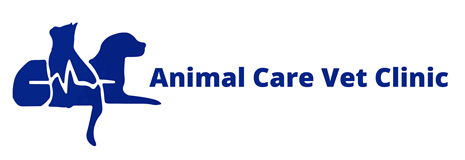Are you thinking of becoming a pet owner? Pet ownership can be an incredibly rewarding experience, enriching the lives of you and your family. But the decision to take on a pet should never be made lightly and is a big responsibility. Ultimately, you want a pet that is happy, healthy and suits your family and lifestyle.
Choosing to become a pet owner
Choosing whether to become a pet owner, and what pet you should get, should never be an impulsive decision. Take your time to think it through as there’s much to consider. Can you care for a pet its whole life? Can you afford a pet? Do you know how to care for a pet? Is your home environment suited to a pet? Will a pet fit into your lifestyle? Is the pet you’re buying healthy?
Your local vet can provide the help and advice you need – so booking in a time to meet with them is a great first step.
What you need to think about
Here’s an essential checklist of issues to go through:
- Time – animals need company, exercise/playtime, socialisation and training, so ask yourself whether you have the time and patience for your pet. How much time can you invest in meeting their needs?
- Care – There will be food, training, medicines and veterinarian fees to pay. As pets age their health needs are also likely to increase so it’s recommended that you budget for their care taking a lifelong approach (the average age most pets live is about 12 years, but can be longer). Consider pet insurance – there are a number of providers to consider and various payment and coverage options.
- Space – where is your pet going to live and do you have enough space? If you don’t have much room you might be better off purchasing a smaller dog rather than the big one you had in mind. Is their a park nearby or other suitable walking areas to take your dog for their daily exercise?
- Allergies – check that no-one in your family is going to be allergic to your pet.
- Expectations – think about what you want from your pet. Do you want an animal that will curl up on your lap quietly or one that you can take for big walks and expel some energy with? What experiences has the anima had to date in terms of its living situation? Does the environment it’s been in, for example noisy and busy, match your home environment? Has the animal been socialised, been around other people and animals? If the animal has lived a very quiet home life you need to carefully introduce it to new experiences so that it isn’t afraid.
- Breed – how puppies and kittens are bred and raised has lifelong effects. Good breeding helps to ensure they have happy and healthy lives. Sub-standard breeding can cause serious health and behavioural problems. This will cause stress to both the puppy and the owner. Different breeds have different characteristics and may have certain inherited disorders associated with that breed, so do some research before you decide. Speak to your veterinarian. Your number one priority should be to have a healthy puppy or kitten.
- Temperament – a happy, interactive animal will adapt more readily to being a pet while a shy, quiet one may need more training and socialisation (therefore more of your time).
- Age and sex - do you want a young animal that will need training or a more mature animal? The sex of the animal will affect how it relates to other pets you may have, and have reproduction implications.
Choosing and meeting the puppy
You may have decided that you want a puppy. You should always buy your puppy directly from the person who bred it or from a rescue shelter such as the SPCA. There are a range of questions to ask the breeder to help you with your final decision. They should be happy and receptive to answer your questions. Below is a helpful guide about the kind of information you’ll need to make a fully informed decision that suits both you, the owner, and the puppy.
- Did the seller breed the puppy?
We recommend that ideally you buy a puppy from a breeder so that you can see the puppy with its mother in the place where it was bred and to find out about the puppy’s history.
- Are the puppies kept where they were bred?
It’s important to see the puppies in the place where they were bred.
- What do I need to find out about the litter?
Find out how many puppies were in the litter. Speak to the seller about visiting at a time when you can see more than one puppy in the litter. Ideally you should visit the puppy when it’s around its mother. Look at the health and behaviour of the mother and the puppies interacting together. If the father is present, observe him also and don’t forget to ask about his health, temperament and other litters he has fathered. If the father (sire) isn’t present see if you can get in touch with his owner to ask the questions you need answers to.
- Have any of the puppies in the litter had health problems? Did the mother have any health issues?
Find out about any health problems and any veterinary care or treatment that has taken place.
More information
In the UK, the British Veterinary Association and the RSPCA jointly developed resources to make it clear what the responsibilities are of both buyers and sellers in relation to a puppy’s health and welfare. There is an excellent section with 40+ questions you can ask to make a fully informed decision about your puppy and to help you care for it.
http://puppycontract.rspca.org.uk/home
http://www.getpuppysmart.com/
Key advice – worming, vaccination and micro-chipping
- Puppies should have been wormed at three stages, at about 2 weeks, 5 weeks and again at 8 weeks of age. Find out if this has happened and whether they’ve been treated for any other parasites.
- Has the puppy been vaccinated? If not, organise vaccination before you take the puppy home.
- It is strongly recommended that puppies are micro-chipped for easy identification. Micro-chipping will help you to trace the puppy if it is ever lost or stolen.
- Ask to see certificates for the above.
What you need to know about inherited diseases
Many inherited diseases are linked to particular breeds and it’s a good idea to be aware of these before you choose a particular breed and take on a puppy. Inherited diseases include cancers, blindness, heart disease, hip dysplasia and more. Avoid puppies with exaggerated features which may seriously affect their health. Speak to the seller (and your veterinarian) to find out more about inherited diseases that may be present in the puppy you want to adopt. Ask to see certificates for screening of problem diseases.
NZVA strongly recommends that pet owners consider pet insurance. Please note that some insurance companies may charge more in insurance premiums, or not cover certain breeds, in relation to inherited disorders.
Caring for your pet
Once you have decided on what pet you’d like, you’ll need to find out what you need to do as a responsible owner to care for it properly.
There are always the basics – food, water, warmth and shelter. But beyond this there are other aspects of care that are equally important – love and emotional needs, nutrition, exercise, play and training. Under the Animal Welfare Act, every owner has a duty of care to their pet.
The Companion Animal Health Foundation (CAHF) carries out research to help improve the health and wellbeing of companion animals. Find out more on their healthy pets website.
First steps after adopting your pet
- Book in an appointment with your veterinarian for your pet’s first check up.


